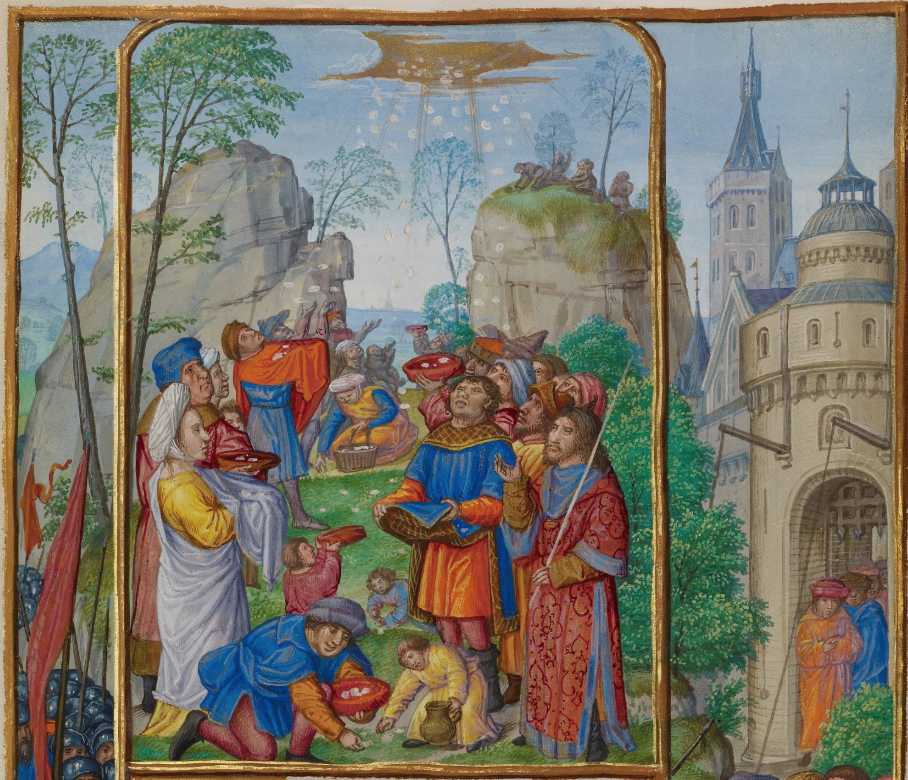Ex. 16:2–4, 12–15 / Ps. 78:3–4, 23–25, 54 / Eph. 4:17, 20–24 / Jn. 6:24–35
The journey of discipleship is a lifelong exodus from the slavery of sin and death to the holiness of truth in Mount Zion, the promised land of eternal life.
The road can get rough. And when it does, we can be tempted to complain like the Israelites in this week’s First Reading.
We have to see these times of hardship as a test of what is in our hearts, a call to trust God more and to purify the motives for our faith (see Deuteronomy 8:2-3).
As Paul reminds us in this week’s Epistle, we must leave behind our old self-deceptions and desires and live according to the likeness of God in which we are made.
Jesus tells the crowd in this week’s Gospel that they are following him for the wrong reasons. They seek him because he filled their bellies. The Israelites, too, were content to follow God so long as there was plenty of food.
Food is the most obvious of signs — because it is the most basic of our human needs.
We need our daily bread to live. But we cannot live by this bread alone. We need the bread of eternal life that preserves those who believe in him (see Wisdom 16:20, 26).
The manna in the wilderness, like the bread Jesus multiplied for the crowd, was a sign of God’s Providence — that we should trust that he will provide.
These signs pointed to their fulfillment in the Eucharist, the abundant bread of angels we sing about in this week’s Psalm.
This is the food that God longs to give us. This is the bread we should be seeking.
But too often we don’t ask for this bread. Instead we seek the perishable stuff of our everyday wants and anxieties. In our weakness we think these things are what we really need.
We have to trust God more. If we seek first his kingdom and his righteousness, all these things will be ours as well (see Matthew 6:33).

